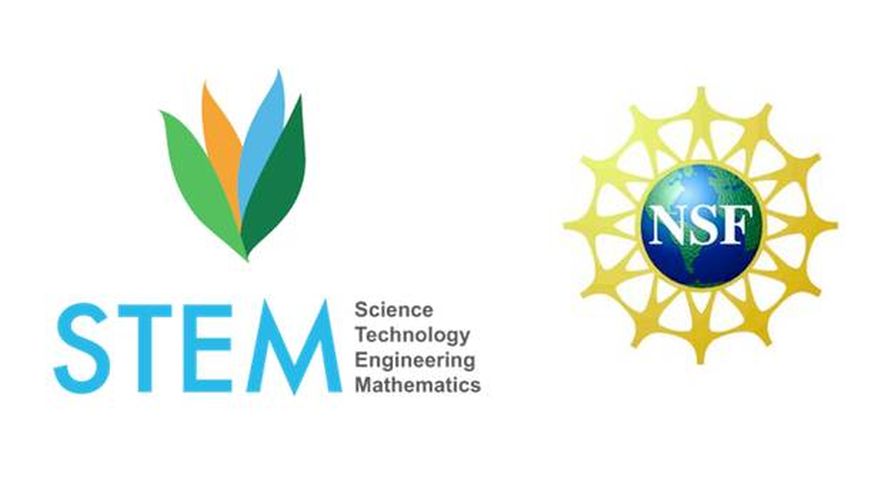Letter of Intent Due Date: 09 December 2015
Full Proposal Due Date: 09 February 2016
The National Science Foundation Research Traineeship (NRT) Program is soliciting proposals. The NRT program encourages the development and implementation of bold, new, and potentially transformative models for STEM graduate education training. The NRT program seeks proposals that ensure that graduate students in research-based master’s and doctoral degree programs develop the skills, knowledge, and competencies needed to pursue a range of STEM careers. The NRT program includes two tracks: the Traineeship Track and the Innovations in Graduate Education (IGE) Track. Several topics are listed for funding, with the total anticipated funded amount totally just under $52 million.
Proposals may be submitted only by the following:
◦ Traineeship Track: Universities and colleges accredited in, and having a campus located in, the U.S. acting on behalf of their faculty members and that award a research-based master’s degree and/or a doctoral degree in a STEM discipline supported by the National Science Foundation may submit to the Traineeship Track.
◦ Innovations in Graduate Education Track: the categories of proposers eligible to submit proposals to the National Science Foundation are identified in the Grant Proposal Guide, Chapter 1, Section E.
The NRT Traineeship Track has priority interdisciplinary research areas that change periodically. For FY2016, there are four priority areas: (1) Data-Enabled Science and Engineering (DESE), (2) Understanding the Brain (UtB), (3) Innovations at the Nexus of Food, Energy, and Water Systems (INFEWS), and (4) any other interdisciplinary research theme of national priority. The priority research areas for the FY2017 competition will be (1) UtB, (2) INFEWS, and (3) any other interdisciplinary research theme of national priority.
Regardless of the research area, proposals must clearly describe an overarching interdisciplinary research focus and outline how the research theme will foster high-return, interdisciplinary synergies. Proposals should also describe how the training and research elements will be integrated and justify the need for bold and innovative approaches to train graduate students in the thematic area. In keeping with the broader goals of the NRT program, proposals should demonstrate significant impact on the design and testing of new curricula and career-focused training approaches specific to the priority research area.
Proposals should also discuss the project's potential to have impact beyond the institution, including the possible broad adoption of approaches, curricula, and instructional material within the relevant disciplines.
Innovations at the Nexus of Food, Energy, and Water Systems (INFEWS)
Humanity is reliant upon the physical resources and natural systems of the Earth for the provision of food, energy, and water. It is becoming imperative that we determine how society can best integrate across the natural and built environments to provide for a growing demand for food, water, and energy while maintaining appropriate ecosystem services. Factors contributing to stresses in the food, energy, and water systems include increasing regional, social, and political pressures as result of land use change, climate variability, and heterogeneous resource distribution. These interconnections and interdependencies associated with the food, energy and water (FEW) nexus create research grand challenges in understanding how the complex, coupled processes of society and the environment function now, and in the future. There is a critical need for research that enables new means of adapting to future challenges. The FEW systems must be defined broadly, incorporating physical processes (such as built infrastructure and new technologies for more efficient resource utilization), natural processes (such as biogeochemical and hydrologic cycles), biological processes (such as agroecosystem structure and productivity), social/behavioral processes (such as decision making and governance), and cyber elements. Investigations of these complex systems may produce discoveries that cannot emerge from research on food or energy or water systems alone. It is the synergy among these components in the context of sustainability that will open innovative science and engineering pathways to produce new knowledge and novel technologies to solve the challenges of scarcity and variability.
Of particular interest for this research priority theme are interdisciplinary efforts that include, but are not limited to, the following:
• Research that builds the fundamental knowledge base on the FEW systems.
• Research that creates innovative solutions to minimize waste and resource consumption, and/or encourage reuse within the systems.
• Developing new ways to integrate heterogeneous data on complex FEW systems.
• Analyzing, modeling, forecasting, and managing natural and built systems critical to FEW.
• Training a workforce to understand that these multifaceted interactions are impacted by physical, chemical, biological, social, cultural, behavioral, and economic processes as well as decisions made by individuals, organizations, and institutions.
• Opportunities for trainees to partner with industry, government, community and non-profit stakeholders that work within the FEW nexus.
• Curriculum that prepares trainees to communicate across INFEWS related disciplines as well as communicating with stakeholders, policy makers and the general public about INFEWS science and issues.
For more information, including details on the other training areas and further requirements, submission guidelines, and program background, click here.





